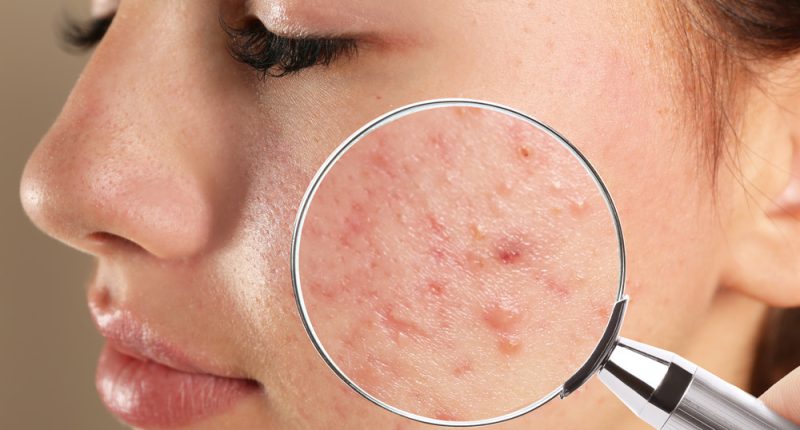Different Types of Skin Diseases – Skin diseases are a common health problem that affects people of all ages, genders, and ethnicities worldwide. Skin diseases can range from mild conditions such as acne to severe and life-threatening diseases such as skin cancer. The prevalence of skin diseases has been increasing in recent years due to factors such as pollution, stress, poor lifestyle habits, and exposure to harmful chemicals. In this article, we will discuss the different types of skin diseases, their causes, symptoms, and treatment options to help you understand and manage these conditions effectively.
Common Types of Skin Diseases
There are numerous types of skin diseases, each with unique causes, symptoms, and treatment options. Here are some of the most common types of skin diseases:
Acne
Acne is a skin condition that affects millions of people worldwide, typically during their teenage years. It is characterized by the formation of pimples, blackheads, and whiteheads on the face, neck, back, chest, and shoulders. Acne can be caused by hormonal changes, genetics, poor hygiene, and certain medications. Treatment options for acne include topical creams, oral medications, and lifestyle modifications such as regular exercise and a healthy diet.
Eczema
Eczema, also known as atopic dermatitis, is a chronic skin condition that causes itching, redness, and inflammation. It can occur at any age and is often associated with allergies and asthma. Eczema can be triggered by environmental factors such as pollen, pet dander, and dust mites. Treatment options for eczema include topical steroids, moisturizers, and antihistamines.
Psoriasis
Psoriasis is a chronic autoimmune disease that causes the skin to become thick, red, and scaly. It affects approximately 2% of the population worldwide and can be triggered by stress, infections, and certain medications. Treatment options for psoriasis include topical ointments, oral medications, and light therapy.
Rosacea
Rosacea is a common skin condition that causes redness, bumps, and pimples on the face. It often affects people with fair skin and can be triggered by hot weather, spicy foods, alcohol, and stress. Treatment options for rosacea include topical creams, oral antibiotics, and laser therapy.
Skin Cancer
Skin cancer is a type of cancer that develops in the skin cells. It is the most common type of cancer in the United States, and its prevalence has been increasing in recent years. Skin cancer can be caused by exposure to ultraviolet (UV) radiation from the sun, tanning beds, and other sources. Treatment options for skin cancer include surgery, radiation therapy, and chemotherapy.
Conclusion
Different types of skin diseases can have a significant impact on a person’s quality of life. However, with early diagnosis and proper treatment, most skin diseases can be managed effectively.
It is essential to seek medical attention if you notice any unusual changes in your skin, such as new moles, rashes, or lesions that do not heal. Remember to protect your skin from the sun, avoid smoking, and maintain good hygiene to prevent the development of skin diseases. Additionally, adopting a healthy lifestyle, including regular exercise, a balanced diet, and stress management, can help keep your skin healthy and glowing.
In summary, Different types of skin diseases are prevalent and can be caused by various factors, including genetics, environmental factors, and lifestyle habits. It is crucial to understand the causes, symptoms, and treatment options for these conditions to manage them effectively. Maintaining good hygiene, protecting your skin from the sun, and leading a healthy lifestyle are simple yet effective ways to prevent skin diseases. Always consult a dermatologist for proper diagnosis and treatment if you suspect you have a skin disease.
FAQs
A: You can prevent skin diseases by practicing good hygiene, protecting your skin from the sun, avoiding smoking, and maintaining a healthy lifestyle.
A: Some skin diseases such as fungal infections and scabies can be contagious, while others such as eczema and psoriasis are not.
A: You can identify a skin disease by observing the symptoms such as redness, itching, bumps, and rashes on your skin. It is advisable to consult a dermatologist for a proper diagnosis and treatment.









